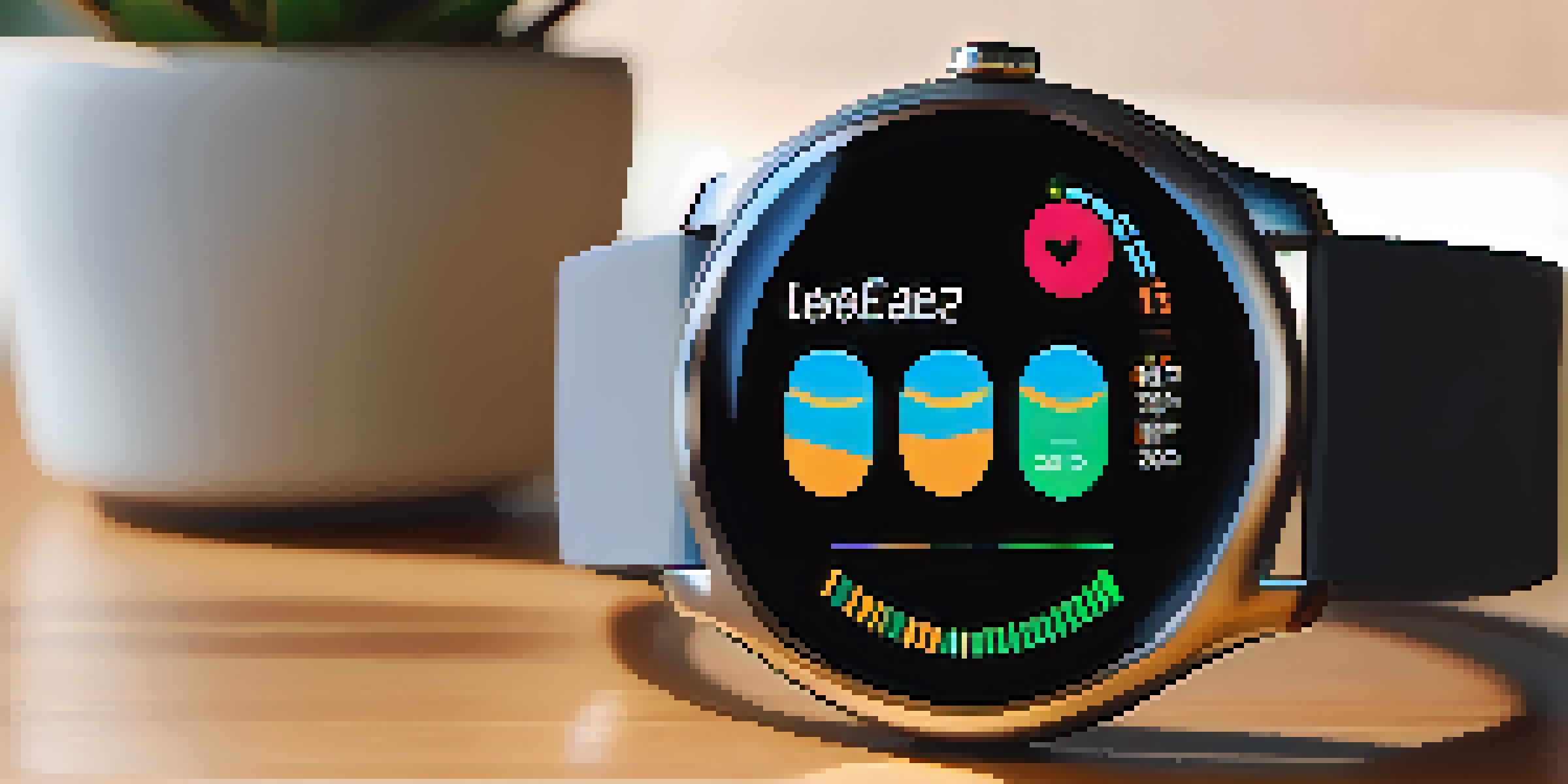The Impact of Technology Use on Biohacking Health

Understanding Biohacking: A Modern Health Revolution
Biohacking is an innovative approach to health that combines biology and technology. It empowers individuals to take control of their own wellness through self-experimentation and data tracking. Imagine being your own health scientist, using tools and techniques to enhance your physical and mental performance.
Biohacking is about taking control of your own biology.
In its essence, biohacking can range from simple dietary changes to complex genetic modifications. With the rise of wearables and apps, even those new to the concept can start their journey toward optimized health. This democratization of health technology makes biohacking accessible to everyone.
As we delve into the impact of technology on biohacking, it’s crucial to recognize how these advancements can lead to more personalized health solutions. The fusion of technology and biology opens doors to a world where individuals can tailor their health journeys to fit their unique needs.
Wearable Technology: Tracking Your Health in Real-time
Wearable devices like fitness trackers and smartwatches have revolutionized how we monitor our health. These gadgets provide real-time data on heart rate, sleep patterns, and activity levels, making it easier to understand our bodies. It's like having a personal health coach right on your wrist!

The data collected from wearables can help identify patterns and inform lifestyle changes. For instance, if your device shows you’re not sleeping well, you might decide to adjust your bedtime routine. This immediate feedback loop empowers users to make informed decisions about their health.
Biohacking Empowers Personal Wellness
Biohacking combines biology and technology, allowing individuals to take control of their health through self-experimentation and data tracking.
Moreover, wearables can enhance biohacking by allowing users to set specific health goals and track their progress. Whether you're aiming to lose weight, build muscle, or improve your mental clarity, technology provides the tools to help you succeed on your biohacking journey.
Mobile Apps: Personalizing Your Biohacking Experience
Mobile applications have become essential tools for biohackers, offering personalized insights and recommendations. From diet and exercise to meditation and mindfulness, these apps cater to various aspects of health. They act like a customized wellness plan, tailored just for you.
In the age of technology, we can use data to better understand ourselves and make informed decisions about our health.
Many apps incorporate AI technology, analyzing user data to provide targeted advice. For example, nutrition apps can suggest meal plans based on your dietary preferences and health goals. This level of personalization is a game-changer for individuals looking to enhance their well-being.
Furthermore, these apps often foster community engagement, connecting users with like-minded biohackers. Sharing experiences and tips within these communities can provide motivation and accountability, making the journey toward better health more enjoyable and effective.
Genetic Testing: Unlocking Your Body’s Unique Blueprint
Genetic testing has emerged as a powerful tool in the biohacking arsenal. By analyzing your DNA, you can gain insights into your genetic predispositions, helping you make informed health choices. It's like having a personalized roadmap to your health potential!
With the knowledge gained from genetic tests, you can tailor your diet, exercise, and lifestyle to better suit your genetic makeup. For instance, if your results indicate a sensitivity to certain foods, you can adjust your diet to avoid those triggers. This targeted approach can lead to improved health outcomes.
Wearables Enhance Health Monitoring
Wearable technology provides real-time health data, enabling users to identify patterns and make informed lifestyle changes.
However, while genetic testing offers exciting possibilities, it’s essential to approach it with caution. Understanding the implications of your genetic information and consulting with healthcare professionals can help ensure that you use this knowledge responsibly and effectively.
The Role of Social Media in Biohacking Communities
Social media platforms have become vibrant spaces for biohackers to share experiences and tips. From Instagram influencers to discussion groups on Reddit, these communities foster knowledge exchange and support. Engaging with others can provide motivation and inspire new biohacking strategies.
Moreover, social media allows for the dissemination of information at an unprecedented speed. New findings in health and wellness can reach a global audience in minutes, encouraging rapid adoption of innovative practices. This connectivity creates a dynamic environment for learning and growth.
However, it's important to critically evaluate the information encountered on social media. Not all advice is backed by science, so relying on credible sources and expert opinions is essential for effective biohacking.
Challenges and Ethical Considerations in Biohacking
As technology continues to shape biohacking, ethical considerations become increasingly important. Questions around data privacy, consent, and the potential misuse of technology can create complex dilemmas for individuals. It's vital to navigate these challenges mindfully to ensure responsible practices.
Moreover, the accessibility of biohacking tools raises concerns about inequalities in health. Not everyone has equal access to technology, which could widen the gap between those who can biohack effectively and those who cannot. Addressing these disparities is crucial for promoting fair health opportunities.
Genetic Testing Personalizes Health
Genetic testing offers insights into individual health predispositions, allowing for tailored dietary and lifestyle adjustments.
Ultimately, fostering an ethical approach to biohacking involves transparency and education. By encouraging informed discussions and responsible use of technology, we can create a more inclusive and beneficial biohacking landscape.
The Future of Biohacking: Technology's Uncharted Territory
The future of biohacking is a thrilling frontier, driven by continuous technological advancements. As new tools and methodologies emerge, the possibilities for enhancing human health are virtually limitless. Imagine exploring the potential of brain-computer interfaces or advanced neurofeedback systems!
Moreover, as technology becomes more integrated into our daily lives, the biohacking community will likely expand. More individuals will embrace self-improvement, seeking ways to optimize their health and performance. This cultural shift could lead to a greater emphasis on wellness in society.

However, with excitement comes responsibility. As we venture into this uncharted territory, it's essential to prioritize safety, ethics, and informed decision-making. By doing so, we can harness technology's power to transform health positively and sustainably.